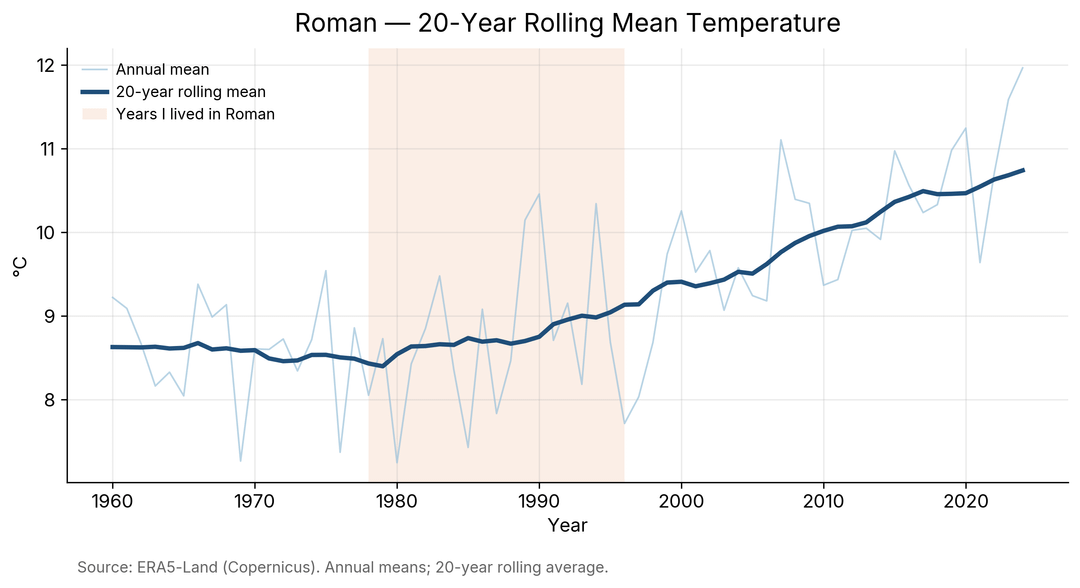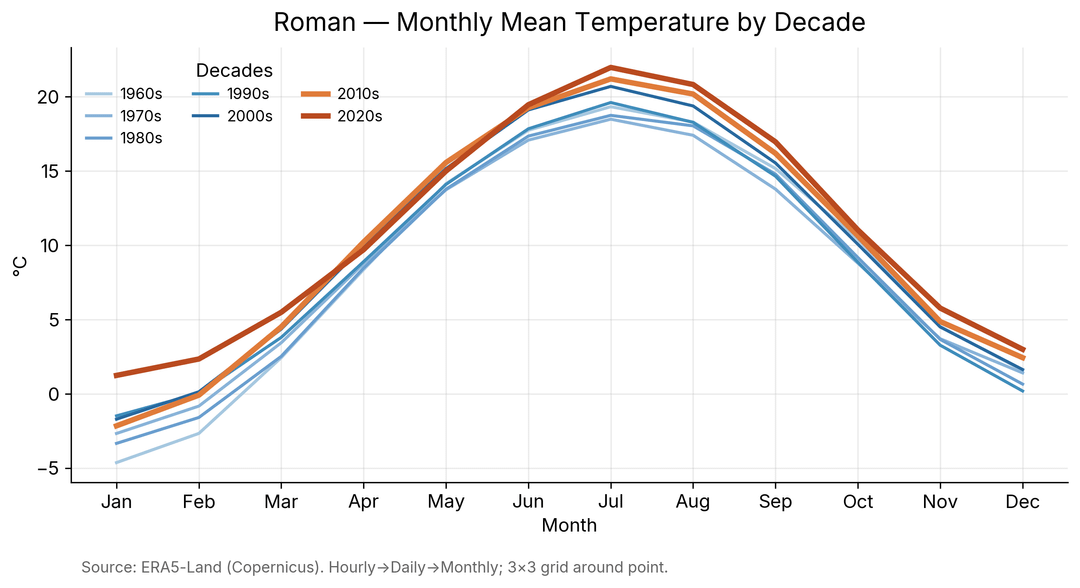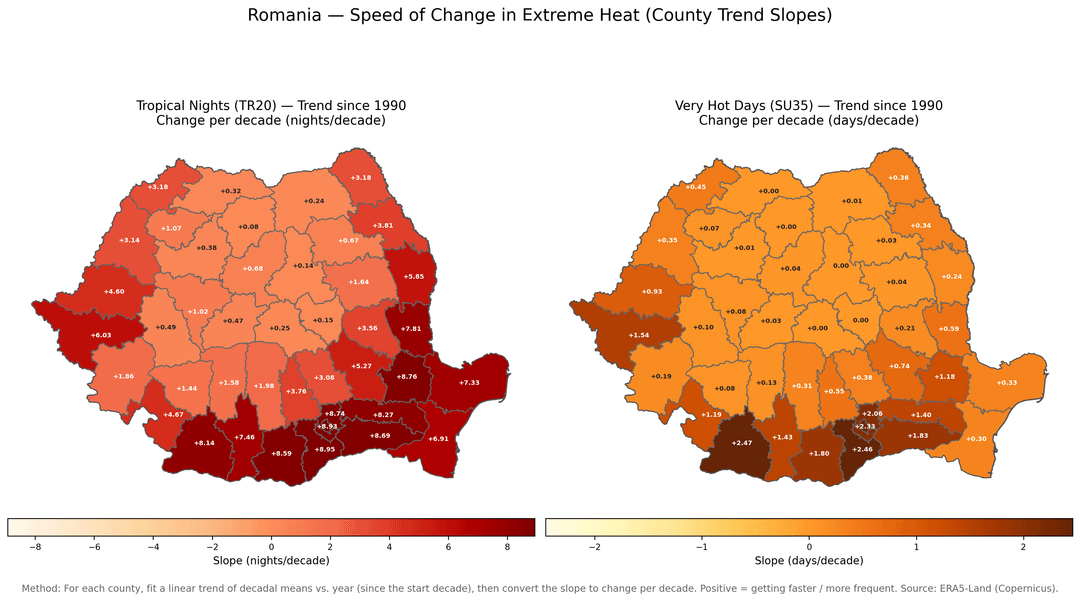


I spent 40+ hours downloading daily temperature data from Europe's Copernicus Climate Data Store to fact-check my childhood memories of cooler Romanian summers.
The data confirmed my intuition wasn't nostalgia – it marked a real climate transition. Key finding: warming rates jumped from 0.13°C/decade to 0.79°C/decade after 2000.
Data source: ERA5-Land (Copernicus Climate Data Store)
Tools: Python, xarray, pandas, matplotlib
Method: Piecewise regression to detect breakpoints, 20-year rolling averages
The personal angle: Growing up in Roman (1980s) in North-East Romania vs living close to Bucharest now. What felt like gentle continental summers became prolonged heat with tropical nights.
Full analysis with charts available here.
Posted by liviuncl
7 comments
Anyone born after 2001 has never experienced a below average temperature season in Europe.
Why did it take you 40 hours to download that data?
What stands out here isn’t just the post-2000 acceleration, but the fact that for ~40 years before that the climate was basically flat with only minor wiggles. That’s not a gentle trend line – that’s two distinct regimes. When you see a breakpoint like that, it usually points to larger systemic shifts (greenhouse forcing + changes in European circulation), not just local noise.
So yeah, your childhood summers weren’t just “cooler” – they were part of a stable climate era that literally doesn’t exist anymore
I havent experienced another -20 winter night since late 2000 or so. Heck, i dont remember going through -15 after 2010.
Winter is just a prolonged autumn now with very few and small dips below 0.
Personal experience from a city from Gorj county and Bucharest.
I learned it’s cold in Rome. Average temp in Toronto is around 8.
Edit Title vs Graph label. My bad
The idea that anyone could functionally notice a 0.5 degrees change in temperature over 20 years is just silly.
You can’t, let alone if you move location at all, an average 0.5 degree temperature change is going to be noticeable at one temperature, and that is snow or not snow. That is it, if you don’t have that, a summers day being 27 or 29 isn’t noticeable. A sustained heat wave being 2 more degrees more unbearable than what was already basically unbearable isn’t noticeable.
This is why we have science and data to show what is actually happening, because my memory of a hot summer is 2006, that isn’t particually recently, and on average summers afterwards have been hotter, but “hotter” by half a degree isn’t relevant because it is either beach weather, shorts weather, t-shirt weather, or jumper weather and that is a range of about 15 degrees, not 0.5 degrees.
This is amazing. I need to do the same thing for Chicago’s climate to validate my memories of what it was like in the ’80s
Comments are closed.